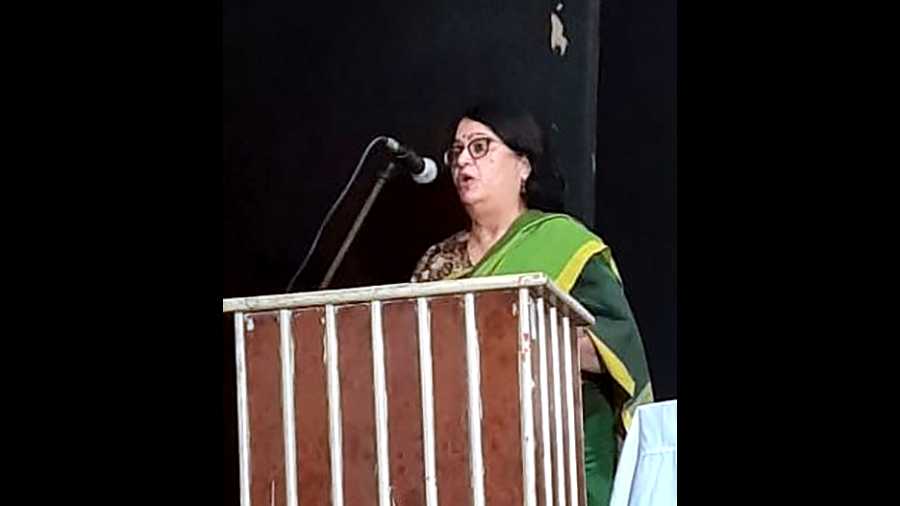Lack of toilets. No nursing room. Differential pay. Author and retired bureaucrat Anita Agnihotri spoke about a host of factors inimical to women at workplaces at a programme on Tuesday.
“Even as we celebrate 75 years of Independence, there is still a dearth of toilets for women on the roads and at workplaces. There is hardly any breastfeeding room in offices, no creches,” Agnihotri said. “Added to these is the menace of sexual harassment at the workplace. Following a Supreme Court order, many government offices now have a committee to look into complaints of sexual harassment. But many private offices do not have such a committee,” said Agnihotri.
She was speaking on “The Struggle of Marginalised Women and the Role of the State”. The occasion was a lecture organised by the Raya Debnath Memorial Trust, named after a “feisty and bubbly” rights activist who died on August 2, 2020, aged 36. Gender equity was something close to Raya’s heart.
On Tuesday, Agnihotri talked of some of the pieces that Raya had written on gender issues before going on to elaborate on what she said was dwindling participation of women in the global workforce. “Globally, participation of women in the workforce has gone down. According to a global survey, in the past two decades, it has come down from 34 to 27 per cent. This dwindling participation of women in the global workforce is not good news for the world,” she said.
“The past two years saw us battling with a pandemic. We saw a slowdown in the number of women joining work, in the recruitment of women and their income. The Institute of Development Studies in Kolkata, has shown through a study, that in Bengal, the percentage of women in the workforce in Bengal — around 26 per cent in urban and 21 per cent in rural areas — is among the lowest in the country,” she said.
“There is no evaluation of the work done inside the home. Not monetary, not even theoretical. But even in terms of work done outside home, there is differential pay for men and women. This is a universal truth,” she said. “What is stopping women from working? This is where the role of the State comes into play. A woman going to work, after slogging it out at her home, expects some favourable policies, she said.
